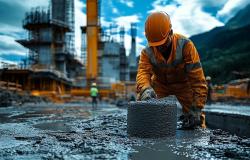Since June 2024, Senegal has entered the restricted circle of oil-producing countries following a discovery made between 2014 and 2016. Today, citizens are growing impatient. For Pape Traoré, driver in Dakar, the situation is difficult to bear. “Before, with 6,000 FCFA of fuel, we could cover several days, which is no longer the case today. With the same amount, we can barely drive. Fuel is very expensive in Senegal, despite the fact that we are now a producing country“, he laments. This feeling is shared by many Senegalese, frustrated at not feeling the impact of hydrocarbon exploitation on their daily lives.
The technical challenges of local refining
Alioune Ndiaye, expert in international development and author of a book on oil and gas, tempers these frustrations by providing explanations. According to him, although Senegal now produces 100,000 barrels of crude oil per day, this is not enough to immediately solve the problems. “You have to understand that it is crude oil, not refined. The Société Africaine de Raffinage (SAR) is currently working to position itself for local refining, but this takes time. Consumers still have to wait“, he specifies.
Read also: Mauritania and Senegal now gas producers
Despite these explanations, Pape Traoré and Serigne M’baye Ndiaye, also a driver, insist on the need to reduce prices. According to them, such a reduction would have positive effects for the entire population. “If fuel prices fell, this would automatically lead to a reduction in transportation rates and the price of butane gas. This would relieve families and revive economic activity», they argue. Their call reflects the urgency felt by many Senegalese economic actors and households.
For Alioune Ndiaye, these expectations are understandable but premature. “Senegal only joined the circle of oil producers last June. In just six months, it is impossible for this to have a direct impact on consumer baskets. This is a complex process, with technical, logistical and economic challenges to overcome.», he recalls. The expert also points out that local refining, initially planned for 2024, has been pushed back to 2025, which delays the hoped-for benefits for the population.
-The exploitation of oil and gas in Senegal marks a historic turning point for the country, but the road to concrete benefits for consumers remains strewn with pitfalls. While citizens’ expectations are intensifying, the technical realities and necessary deadlines remind us that transforming a country into a hydrocarbon producer is a long-term process. In the meantime, the Senegalese continue to hope that this national wealth will eventually lighten their daily lives.
Par Mamadou Awa Ndiaye (Dakar, correspondence)
01/19/2025 at 4:15 p.m.





